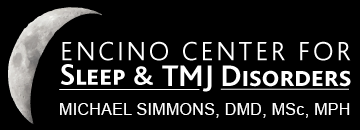
Mental Health and Sleep
If you’ve ever missed a night of sleep, you know how difficult it can be to function the next day. With a disorder that commonly disrupts your sleep, you may feel like that every day. When you can’t sleep, you may gain weight and feel fatigued.
Mental health has been found to worsen when sleep deprivation is present. For people who suffer from sleep issues and a mental health disorder, the two can affect each other in a vicious cycle. A lack of sleep can cause your mental condition to worsen, and when your mental health worsens you may have more trouble sleeping.
The good news is that this relationship can also be affected positively. When one condition is treated with positive results, the other condition usually improves as well. The link between mental and physical health can be used for the betterment of your life.
What is Sleep Apnea?
Obstructive Sleep Apnea (OSA) is a sleep disorder caused by the throat restricting the flow of air to the lungs while you sleep, obstructing normal breathing patterns. People with OSA can find themselves waking up in the middle of the night, gasping for air.
Common symptoms of sleep apnea include snoring, decreased quality of sleep, and pauses in breathing during sleep. If you notice any of these symptoms in you or a loved one, it could be sleep apnea.
Sleep apnea is a risk factor for many serious physical conditions such as strokes, diabetes, and hypertension due to strain on the heart and cardiovascular system. But sleep apnea affects more than just your physical health.
How are Sleep Apnea and PTSD related?
One of the most commonly known symptoms of post-traumatic stress disorder (PTSD) is trouble sleeping. People afflicted by PTSD often have nightmares and insomnia that lead to difficulty in their daily lives. Among these sleep difficulties, OSA also appears prevalently.
In a study on veterans with PTSD, doctors determined that 69.2% of their 195 subjects were at high risk for OSA. They also found that for every significant increase in PTSD symptoms, a 40% increase in risk for sleep apnea was associated with it. The worsening of PTSD symptoms appears to put the afflicted person at a higher risk of developing sleep apnea.
The connection also goes the other way. According to a study published in April of 2019, sleep disruption was found to impede the recovery and processing of traumatic memories in people with PTSD. Without the sleep necessary to rest and recover, the condition of overall health begins to decline even more.
It’s become clear that PTSD symptoms reach beyond mental health, affecting the whole body. However, the reason for the connection between sleep apnea and PTSD is not yet known because both disorders can be complex. Each disorder affects the other and causes additional or worsening symptoms. What we do know is there’s a distinct relationship between the two.
Does Sleep Apnea Treatment Help PTSD?
One of the interesting effects of comorbid disorders is that treatment for one condition affects the other. Treatment of OSA has been found to improve depression, anxiety, and quality of life, among other symptoms of PTSD.
Sometimes, sleep apnea in people affected by PTSD can be difficult to treat. Masks from CPAP machines, a common sleep apnea treatment method, can cause claustrophobia. However, the use of mouthpieces, or Oral Appliance Therapy, designed for sleep apnea has been found to treat symptoms of OSA without negative effects.
Start Getting Your Life Back
If you’re affected by sleep apnea and PTSD, your life may feel out of your hands. At Encino Center for Sleep & TMJ disorders, we offer various sleep apnea treatments so you can sleep soundly through the night.
To learn more about how we can help you and your treatment options, call us at 818-300-0070. Whether you need a mouthguard, CPAP, or lifestyle changes, Dr. Simmons is an experienced dentist who can help you find what you need.
